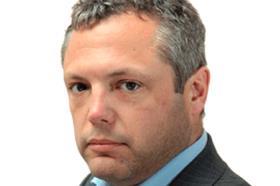The last in-person risk and compliance conference before last week was held on Friday the 13th. That was in March 2020, just days before the Covid shutters came down.

How fitting. At this year’s event, Freshfields’ Amasis Saba, who chairs the Law Society’s money laundering taskforce, unwittingly echoed that inauspicious narrative when reviewing the regulatory landscape two years on.
‘I like to have a theme and this one felt very much like a disaster movie,’ he told delegates. ‘It does just feel like there are waves and waves of requirements and regulations and expectations. Just hitting us when we’re desperately trying to keep the lights on, and keep everything functioning, and keep everyone happy and safe.’
If these ‘waves’ are presently big enough to surf on, it feels (to this layperson at least) that there is a tsunami not far behind. Anti-money laundering, law firm ‘culture’, compulsory (?) exposure to unregulated comparison sites.
Fraud, personal conduct, fair competition. Just three areas where one edict, bill or ‘guidance’ note follows hard upon another. Do keep up! Risk and compliance specialists seldom get to knock off at 5pm. Their task is Sisyphean.
I do wonder to what extent the accelerating consolidation of the small firm market is driven by this daunting and ever-lengthening agenda. How many firms have reached a tipping point, or are about to do so? The cost of PII cover is a big enough headache on its own. Far better to share the load.
The conference highlighted a paradox here. In an environment of principles-based regulation, the boxes which law firms must tick are proliferating. That is not to question the good faith of regulators. Watchdogs take their lead not only from the political weather, but also the rapidly morphing social climate for doing business.
What can now be seen as regrettable, averred one speaker, is the profession’s relative neglect of ethical training – a stark contrast with other common law countries. It was cited in the topical context of acting for ‘immoral’ (sic) clients.
There is an important difference between morals and professional ethics. How many could adequately articulate the distinction? The public needs to be educated. But not only the public.































No comments yet